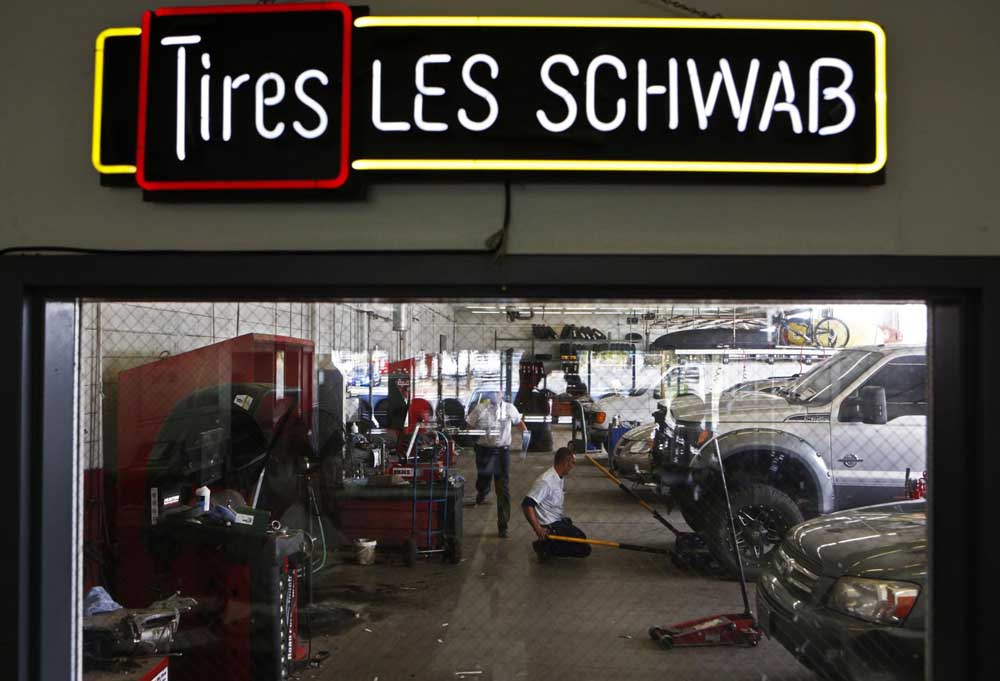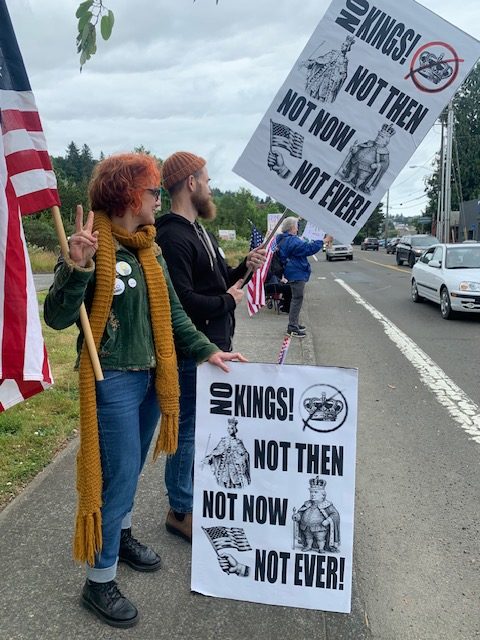Les Schwab Tires considering selling business
Published 10:28 am Tuesday, December 24, 2019

- Les Schwab Tire Center employees install tires at the Franklin Avenue location in Bend.
Les Schwab, the Bend tire powerhouse known for its customer service, company culture and — once — its fierce commitment to keeping the business in the family, is considering a sale.
Bloomberg reported Tuesday that the independent retailer is “exploring options including an outright sale, which could fetch at least $3 billion.” The report, attributed to people with knowledge of the matter who asked not to be identified because of the deal’s privacy, said that the company is working with an adviser as it weighs alternatives, including divesting its real estate portfolio.
It would be a historic, and surprising, move for the business. Long after Les Schwab founded his eponymous company in 1952, he made it clear that he had no interest in passing control of the company to anyone outside his family.
“This company isn’t for sale,” he said in 1997. “It will go on, bigger and better than ever and continue to provide opportunities for young people to be successful. All the stock will remain in our family.”
In step with his desire to keep the business family-owned, Schwab rebuffed offers over the years from French tire magnate Francois Michelin and billionaire investor Warren Buffet.
Schwab reckoned with the fate of the business and its ownership when, in 2006, his daughter, Margie Denton, passed away after a long battle with cancer. Schwab’s son, Harlan, had died in a 1971 car crash.
The loss of his second child devastated Schwab, and it also forced him to reevaluate the future of the company. Until Denton’s death, the tire baron had trained his daughter, a board member and active participant in the family business, to take the reins when he stepped down. Denton had also pledged to keep the business in the family, at least through her generation.
The responsibility of the business would fall to Schwab’s four grandchildren, who weren’t as active in the business as their parents and grandparents.
Now led by Chief Executive Officer Jack Cuniff, the company has $1.8 billion in annual revenue, according to a November 2018 interview with The Bulletin. Les Schwab operates 450 locations across 10 states, including Washington, Oregon and California.
Les Schwab is one of the largest employers in Central Oregon, and its sale could throw its large regional workforce — split between white-collar jobs at the company’s Bend headquarters and blue-collar ones at its warehousing and manufacturing operations in Prineville — into doubt.
A large employer with a workforce that cuts across income brackets is a rarity in more rural parts of Oregon, said Damon Runberg, a regional economist for the Oregon Employment Department.
“For a community like Prineville that had some really big losses on the manufacturing side and wood products, (a sale) would create a level of uncertainty in that community in particular,” Runberg said. “And a firm of that size with that many professional jobs in someplace like Bend, that would probably make anybody nervous.”
The prospect that Les Schwab could be absorbed by another chain of tire retailers could add to the unease. The administrative, manufacturing and distribution jobs could be seen as obvious cuts as the buyer grows its footprint.
And while Prineville’s economy has made up for the loss of some manufacturing jobs with new data centers operated by some of the biggest names in the tech sector, those server farms haven’t proven to be big enough drivers of middle-wage jobs to offset those lost.
Les Schwab’s pending sale is the latest in a string of signature Oregon companies that ultimately sold to larger businesses out of state. From Fred Meyer to Tektronix, to more recent deals for Precision Castparts and — just this month — New Seasons, the state has suffered a steady erosion of corporate headquarters.
The deals haven’t derailed Oregon’s economy, which is enjoying one of its longest expansions on record. But the sales worry economists, who feel the state may be vulnerable in the long run without big, local companies to anchor the economy.
And the deals underscore the inability of Oregon entrepreneurs to grow big new businesses to replace those that sold. That may reflect, to a large degree, the nation’s economic concentration in big metropolises like Seattle and the San Francisco Bay Area.
Private equity firms have been investing in tire and auto-focused retailers, in part because they have been less disrupted by the rise of e-commerce, according to Bloomberg. Bain Capital agreed to invest in Dealer Tire in 2018, and earlier this year Greenbriar Equity Group LP acquired Evans Tire & Service Centers, Bloomberg reported. Industry giants, meanwhile, have snapped up smaller rivals, with Goodyear Tire & Rubber Co. agreeing last week to buy Evansville, Indiana-based Raben Tire Co. for an undisclosed amount.





